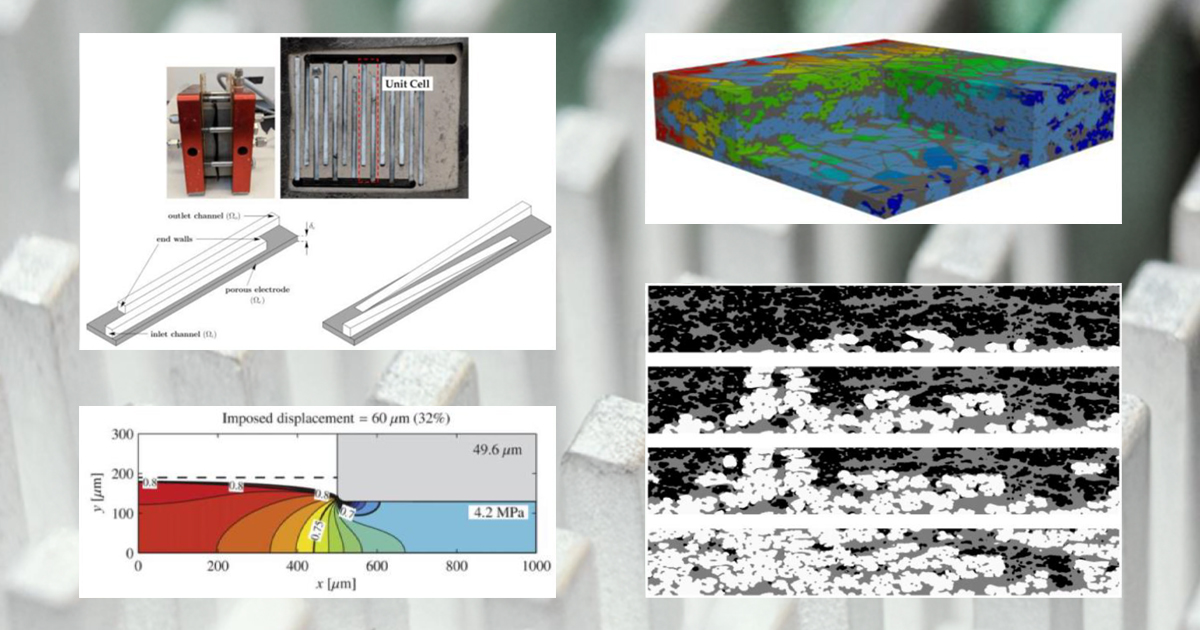- 3.2Impact Factor
- 6.4CiteScore
- 16 daysTime to First Decision
Additive Manufacturing of Metallic Porous Components in Electrochemical Systems
This special issue belongs to the section “Manufacturing Processes and Systems“.
Special Issue Information
Dear Colleagues,
Electrochemical energy and conversion devices, such as fuel cells, electrolyzers and batteries, are expected to play a key role in the decarbonization of the energy system during this century. Additive manufacturing of metallic porous components is a powerful approach for the design of tailored components to reduce electrical contact resistances, enhance two-phase transport, improve mechanical integrity, and create durable interfaces, among other benefits. This trend is reflected in the exponential growth of the number of publications related to “printed electrochemical devices” in the last decade. Additive manufacturing can also provide the following innovative solutions along the value chain for the design of next-generation electrochemical devices: (1) complex geometries, design freedom, fast prototyping, cost-efficiency, automated fabrication, and material saving; (2) the integration of modeling and numerical methods in the design cycle; (3) high performance and extended durability; and (4) a ubiquitous availability. Meeting these goals is crucial to increasing the competitiveness of electrochemical devices against other alternatives while creating a more sustainable society.
Dr. Pablo Á. García Salaberri
Guest Editor
Dr. Julia Ureña Alcázar
Guest Editor Assistant
Manuscript Submission Information
Manuscripts should be submitted online at www.mdpi.com by registering and logging in to this website. Once you are registered, click here to go to the submission form. Manuscripts can be submitted until the deadline. All submissions that pass pre-check are peer-reviewed. Accepted papers will be published continuously in the journal (as soon as accepted) and will be listed together on the special issue website. Research articles, review articles as well as short communications are invited. For planned papers, a title and short abstract (about 250 words) can be sent to the Editorial Office for assessment.
Submitted manuscripts should not have been published previously, nor be under consideration for publication elsewhere (except conference proceedings papers). All manuscripts are thoroughly refereed through a single-blind peer-review process. A guide for authors and other relevant information for submission of manuscripts is available on the Instructions for Authors page. Materials is an international peer-reviewed open access semimonthly journal published by MDPI.
Please visit the Instructions for Authors page before submitting a manuscript. The Article Processing Charge (APC) for publication in this open access journal is 2600 CHF (Swiss Francs). Submitted papers should be well formatted and use good English. Authors may use MDPI's English editing service prior to publication or during author revisions.
Keywords
- additive manufacturing
- electrochemical devices
- metals
- porous media
- performance
- durability

Benefits of Publishing in a Special Issue
- Ease of navigation: Grouping papers by topic helps scholars navigate broad scope journals more efficiently.
- Greater discoverability: Special Issues support the reach and impact of scientific research. Articles in Special Issues are more discoverable and cited more frequently.
- Expansion of research network: Special Issues facilitate connections among authors, fostering scientific collaborations.
- External promotion: Articles in Special Issues are often promoted through the journal's social media, increasing their visibility.
- e-Book format: Special Issues with more than 10 articles can be published as dedicated e-books, ensuring wide and rapid dissemination.

